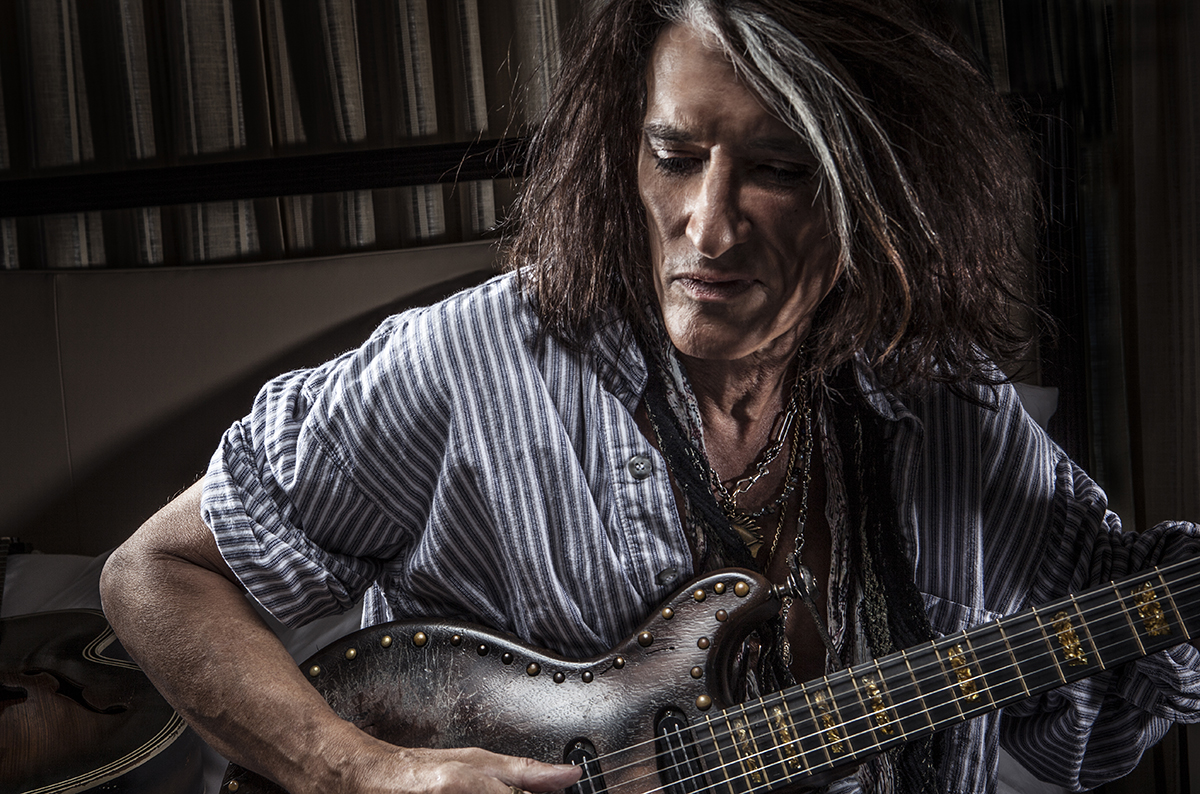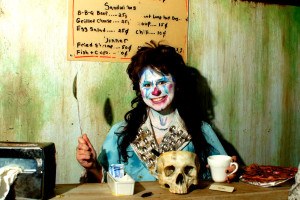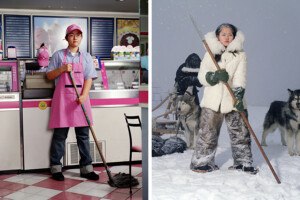Aerosmith’s Joe Perry Talks New Memoir, Rocks: My Life In and Out of Aerosmith

Photograph by Formento & Formento
It’s never been smooth sailing for Aerosmith, which got its start in Boston four and a half decades ago. Guitarist Joe Perry’s particularly bumpy ride has included manipulative managers, a well-documented history with drugs, and a turbulent relationship with frontman Steven Tyler. In his new memoir, Rocks: My Life In and Out of Aerosmith, Perry tells his side of the story—from the late-’70s turmoil that led to his five-year split from the group, to a comeback in the ’80s, and his on-again, off-again parrying with Tyler. (As recently as 2010, the group openly admitted that it was seeking a new singer.) We checked in with Perry via phone from the West Coast, where the band was in the midst of a late-summer tour.
What does it mean to be one of the musicians who are consistently associated with Boston?
It’s an honor. I think it’s kind of ironic, because in 1975 there would be no chance in hell [that would happen]. When I was in my early teens, I’d get my mother to drive me into the train station so I could take the train in. I’ve traveled all around the world, and it still holds the same charm for me. It’s a world-class city, but it’s really a small town.
Getting into the book, what was the most important part for you to get out there in telling your story that kind of hasn’t been told yet?
I look at us as kind of a family of choice—that we picked each other to play in a band with and give it a try. Back then, bands would get together, stay together for a few months, and then break up after trying to get some success. We really had something because we heard the music we were making was the kind of stuff we were chasing, so we stayed together through it all. Through a lot of hard times, and you know, it’s been pretty well documented the 70s. I didn’t spend much time in the 70s with all of the events that led up to me leaving the band. After the band made it, we wouldn’t have gotten back together with what I think of as the really pure intent of just getting back to play music. After seeing what it was like to get back out there again on my own and the other guys also realizing something about the five of us as individuals. The point is, we stayed together and took it day by day, and 42 years later or whatever, we’re still doing it.
It’s not like other professions or careers where there’s some kind of career path. A lot of it was trailblazing. When the band was getting together, we lost three incredible talents—Janis Joplin, Jimi Hendrix, and Jim Morrison—then the list goes on from there. They were just the tip of the iceberg. Bands broke up, or bands would have a hit and be gone. It’s not what you would call a wise career choice for longevity, but we loved playing the music too much. We loved the sound and the excitement of it—that feeling of standing up on the stage in front of a few hundred people—and, you know, back then if you had 500 people, you would be lucky but then things started to pick up and one thing led to another we were fortunate. It was the right place at the right time. We had some of the right people around us to help, so it’s a combination of things like that. But it’s not all good, and I wanted to put that side across.
You’ve had a complicated relationship with Steven. In the book, when you talk about him trying out for the Led Zeppelin reunion in 2008, you seem more bewildered and maybe borderline hurt that you weren’t told about it, rather than being pissed off.
The “pissed” goes without saying. If you dwell on that place for very long, it’s not only poison to yourself emotionally and physically, but it builds a wall and takes whatever good the relationship is and takes a lot of potential off that. Being pissed is the obvious thing. It wasn’t something that just happened, like everything is all fine and dandy and then he pulls something like this. This is something that I saw building up from the very early days. It’s almost like, I shouldn’t have been surprised, but still, when that went down…he doesn’t feel like he could at least tell me what he was doing? I thought we were partners here. It’s like a partnership of convenience thing. That’s how it felt, that’s how it feels sometimes.
Have any of the other guys in the band read the book yet?
No they haven’t. Up until a few days ago, it was really still in pieces. I want them to see it when it’s finished.
In Rocks, you write that you weren’t satisfied with how the first two albums came out. If you had to list them, what would be your top three albums in the Aerosmith catalog?
Night in the Ruts; that was the one where I left before it was finished. I think it would’ve gotten more notice if we had been able to tour behind that as the original band. Rocks, we were at our peak creatively; we were just warming up to Rocks when we did Toys in the Attic, and Rocks was just kind of the payoff. And I have to say that the blues record [Honkin’ On Bobo], that was just unfettered fun making that record. We put every bit of creativity into that record, and that’s one of the records I like to listen to; and I don’t listen to our stuff that often, but that’s one I do.
Now live it seems like you guys are firing on all cylinders. Would you say it’s safe to say that the music is bigger than any egos involved or is it the egos that drive the music?
The real key is bringing that average up and that’s part of the magic of being together for so long. You learn to get to the point that even if you’re not having a great night for that audience, it’s going to be a great show even if you know you’re not totally in stride. That’s part of the magic of the whole live thing. Whether it’s live theatre or sports there is nothing like it. It’s comfortable watching it on TV and all that, but there is nothing like being in the seat watching it live. You try to create an excitement that takes people away and when the show’s over you want them to go “Wow! Where did that couple of hours go? That was amazing.” I remember we used to tell (I think I even said that in the book) how good the show was by listening to the crowd leave the building and if we heard them yelling and screaming and breaking bottles, we knew we did a good job that night. If they were kind of quiet and like “Well, you know, I’ve seen them better,” then we know we sucked.
You seem to be wavering a bit on what’s going to be next in regards to new music. I know you’re getting close to finishing up your next solo record—Steven wants to put his own solo record out—do you think there will be another full length Aerosmith or are you thinking something like an EP or a series of EPs?
With us being off the record label, we’re really not sure yet. I myself have been working for the last three years pretty much flat out between working on the book and finishing a record, you know the Aerosmith record, and working on some solo stuff. We’ve talked about some different options about possibly touring next year. We’ll probably know more once we get off the road and everybody gets some time away and start to figure out what way we’re really going to go. If I really still feel like finishing another solo album—I mean I really feel like it now. I’ve got five or six things ready to go. The approach has just been different than the other ones I’ve done, and Steven’s talking about doing another one, which is great, because he has wanted to do it for a long time. I really don’t know what the path is going to be or the one we’ll follow. I know that we’ll be on the road at some point again God willing and I’m not sure what we’ll do as far as the studio goes. Who knows?
When we go out there and play live, people don’t really want to hear a thing unless they know it. We’ve played a couple of songs off the new record and gotten some polite applause. Before the tour and after the record came out, I tweeted, “What song off the new record would you like to hear?” The first tweet I got back was, “It depends on what song you have to take out of the set.” That really put things in perspective. … I don’t know if it’s worth going in and sweating blood over a new record when we could be out on the road playing all these other songs that people want to hear. It’s an interesting position to be in.
It really does put it into perspective when you hear something like, “Well what do you have to take out to put that in?”
Yeah, it was like, “What the fuck.” But that’s right. When you’ve got 21 songs, basically, you’re going to have to lose something and it could be something three quarters of the audience would want to hear as opposed to maybe 500. That definitely ways heavy on the decision making when we are putting the set together and when we think about going in and spending time making a record. When you’re making an Aerosmith record, it’s by committee, and when you do a solo record, you don’t have to answer to anybody. You can have it the way you want. We have plenty of songs to play live, but who knows, we may have a song that will make it on the radio and then people will want to hear it and there you go.
10/9, Coolidge Corner Theatre, Brookline, brooklinebooksmith.com.
This interview has been condensed. For more, visit vanyaland.com.


